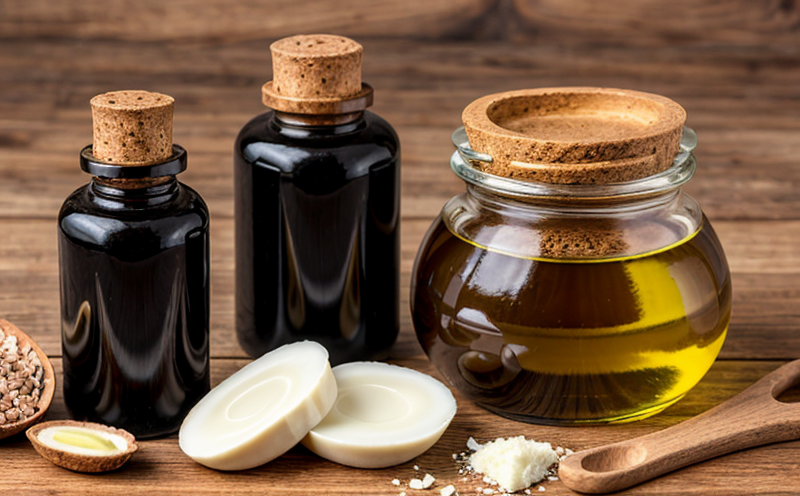ISO 15788-1 Sterol Profiling in Oils and Fats
The analysis of sterols in oils and fats is a critical process within the food & feed testing sector. ISO 15788-1 provides detailed methodologies for determining the sterol content, which plays a pivotal role in ensuring product quality, safety, and regulatory compliance.
Sterols are naturally occurring compounds that can provide insight into various aspects of oil and fat products including their origin, processing history, and potential contamination sources. This profiling is essential for industries dealing with food safety, nutritional labeling, and quality assurance. The analytical procedures outlined in ISO 15788-1 allow laboratories to identify specific sterols and evaluate the overall composition accurately.
The process involves several key steps: sample preparation, extraction of sterols from fats or oils using appropriate solvents, derivatization if necessary for analysis by gas chromatography (GC), and finally, quantification through GC coupled with mass spectrometry (GC-MS) or other suitable analytical techniques. The precision and accuracy of these methods ensure reliable results that meet international standards.
Understanding the sterol profile helps in assessing the authenticity of fats and oils, detecting adulteration, verifying quality claims, and ensuring compliance with dietary restrictions for sensitive populations such as those following a low-cholesterol diet or specific religious practices. It also supports research into new applications like nutraceuticals.
Our laboratory adheres strictly to ISO 15788-1 guidelines when performing sterol profiling. Our team of experts uses state-of-the-art equipment and follows rigorous quality control protocols to deliver accurate, reproducible results every time. Compliance is not just about meeting minimum requirements; it’s about exceeding expectations by providing consistent reliability across all samples processed.
The importance of this service extends beyond mere compliance—it contributes significantly towards maintaining public health standards. By identifying potential risks early on, stakeholders can take proactive measures to prevent contamination incidents and maintain trust among consumers.
Why It Matters
Demonstrating adherence to international standards like ISO 15788-1 is crucial for maintaining credibility within the global market. For quality managers, this ensures that their products meet strict safety regulations and can be trusted by end-users.
Compliance officers benefit from having reliable data supporting claims about product purity and authenticity, which helps build consumer confidence while reducing liability risks associated with non-compliant products.
R&D engineers find value in using sterol profiling results to innovate safer, more effective formulations or explore novel applications of existing raw materials. This information can guide formulation decisions based on natural characteristics rather than synthetic alternatives.
For procurement teams, knowing the sterol profile allows them to source high-quality ingredients confidently, ensuring consistency throughout supply chains and minimizing the risk of purchasing substandard products unintentionally.
Applied Standards
| Standard Reference | Description |
|---|---|
| ISO 15788-1:2019 | Method for determining sterol content in vegetable oils and fats by gas chromatography/mass spectrometry (GC/MS) or high-performance liquid chromatography (HPLC). |
| ASTM D6457-18 | American Society for Testing Materials' standard test method for sterol analysis in vegetable oils and fats. |
| EN 15392:2012 | European Norm specifying the procedure for determining sterols and stanols in vegetable oils by HPLC. |
| IEC 62447-1:2020 | International Electrotechnical Commission standard dealing with sterol content measurement methods applicable to various food products including fats and oils. |
International Acceptance and Recognition
The widespread adoption of ISO 15788-1 across industries reflects its significance in the field of food & feed testing. Laboratories certified to perform sterol profiling according to this standard enjoy broad recognition worldwide, enhancing their reputation as trusted partners for businesses seeking assurance about product integrity.
Companies that invest in such services demonstrate commitment to excellence, which translates into competitive advantages by fostering consumer trust and enabling strategic partnerships with reputable organizations.





